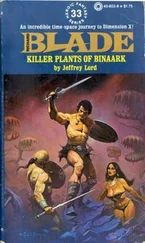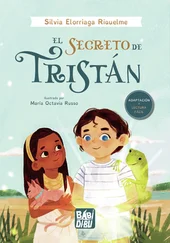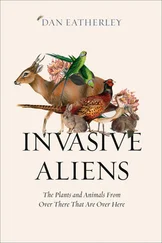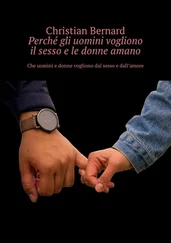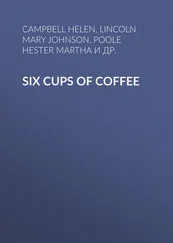Salvatore’s bought a bowler hat now. And he never takes it off, day or night. When he goes to the casino too, he wears the bowler hat and sits at the table. And he says England is a great nation. And so is Great Britain. He doesn’t want to hear mention of Ireland .
Piedad had fallen asleep in front of the TV. When she woke she saw there was no cat on the other side of the sofa on which she was sitting. The cat Piedad had imagined before falling asleep had disappeared.
She gathered the plates she’d used for her meal and took them to the kitchen. She did the dishes every other day.
Then there’s Piedad, Sorin. Do you remember, Sorin, that I told you lots about Piedad? We get together every summer. She arrives the day after tomorrow. She works at a hospital. In England. But she arrives the day after tomorrow. Seven summers with Piedad, Sorin. Easily said: seven summers. We go on trips during the summer; last year we went to Italy. If we don’t travel, Piedad comes to my house every day. I work in the morning and around midday she comes over. We eat together. We kill the evening. Sometimes we just stay at home, or we go for a walk, or a drive. Sometimes we get into the car and drive to Eldas or Lanta; we’ve even gone as far as the mill at times. But sometimes we just stay inside the car, with the engine shut off. Do you ever do that Sorin? Do Alma and you ever do that, sit still inside the car with the engine shut off? And in your plane, do you ever sit still inside the airplane, with the engine shut off?
We try to make the best of the summer, because it’s all we have. Piedad leaves in September. That’s why Elias says it’s odd we don’t get married. To tell you the truth, everybody asks the same, why don’t we get married. They say we would have the whole year if we did, and not just the summer. But you know why we don’t get married, Sorin. I told you. We don’t marry because I don’t want to hurt Piedad. And there are two reasons, as you know. I told you one some time ago. I told you the most important one, Sorin. But there’s another one too; smaller perhaps, but a reason all the same. It’s also a silly reason. Alma and you, do you have silly reasons too, Sorin? We have lots; that’s probably why we won’t ever marry .
You know me well Sorin, you know what I’m like: I have no chin, my ears droop, my eyes are weak. And I weigh barely forty-five kilos with my clothes on. I am a quarter of a man, Sorin. And Piedad? You should meet Piedad, Sorin. And what does Piedad deserve? A pathetic little thing like me? I don’t think so. But that’s the second reason, the lesser one. The other one is more important, the one I told you some time ago is the more important reason. But Piedad says it isn’t, nevertheless. Piedad says that even the other reason, the one I told you some time ago, is a silly reason. What do you think, Sorin? And Alma, what does Alma think?
Piedad watered her plants. She called one plant Fermina and the other one Tadeo, and she wiped their leaves with a damp cloth. One by one. Afterwards she went out. She took a little stroll to the chestnut tree and arrived at Rosa’s by quarter to five. Rosa and Martina were there, in the sewing room. Tomas was lying on the ground. Piedad sat next to the sewing machine and started to talk.
Do you remember, Sorin, how Gustav used to spend whole evenings in complete silence? Silent like a cauliflower? Now he’s the opposite. Now Gustav never stops telling stories. Stories about Paris, especially. You do know that Gustav lived in Paris, right, Sorin? The other day he told us he met Erik Satie in Paris. In a park. You know who Erik Satie is, do you, Sorin? A musician, a composer. But above all, a madman. Erik Satie was a madman, like us. Many curious stories are told about him. And some are probably true, but I’m sure not all of them are. They say he used to practice three religions. Three different religions, Sorin: his own and our two. He practiced the religions we don’t practice for us. But apparently he thought three weren’t enough, so he founded another one; Satie invented a new religion. And he wrote its First Commandment: Erik Satie will be the only member of this religion. That was his First Commandment. That’s what I admire in Satie, Sorin: he didn’t want followers .
Do you realize, Sorin, that everybody except Satie wants followers? Us too. We want them in architecture, others want them in painting, others in religion, Salvatore in sculpture. Everybody, except Satie. Satie didn’t want any followers. In music either. The critics at the time used to say that Satie was opening new musical avenues, that he was founding a new school. But Satie himself ridiculed these sentiments. He said: “There is no Satie school. ‘Satieism’ can never exist. I myself would be against it.” That’s who Satie was. That’s why I admire Satie .
And Satie did thousands of things like that. Gustav told us some. Apparently the scores he used to write were something to behold. You know how composers write annotations on the score, do you? To signal to the musicians how each passage ought to be played. Imagine what Satie’s annotation must have been like. Once he wrote on a score that a particular passage had to be repeated for eighteen hours. Eighteen hours, one passage, Sorin, no more, no less. But that wasn’t the end of it, Sorin: in another annotation he wrote, “The music in this score may not be played; it is expressly forbidden by the composer.”
Piedad continued talking in the sewing room. She was talking enough to break a sweat. It took Tomas twelve minutes to get a needle out of a crack in the floor. When he got it out he realized it was a little rusty.
Erik Satie died twenty years ago, Sorin. And his friends found more than four thousand small pieces of paper all over his house. They were everywhere, these papers. Under the bed, behind paintings, between piano strings. There was a text written on each piece of paper, some were long, some short. Gustav read ten or so (he had a book on him). I liked this one (I wrote it down): “I met a poor guy once. He never slept in his house. He said his name was a name to sleep outside. This memory isn’t completely distasteful to me.” Did you like it, Sorin? Read it to Alma and ask if she likes it .
At quarter past six Martina went out to deliver a dress. She came back almost immediately. Piedad was still talking when Martina returned. Tomas pressed the sewing machine pedal accidentally.
Have you come across any worthwhile architects lately, Sorin? Tell me if you have. Last April I went to Park Güell. Have you been to Park Güell, Sorin? Did you see the columns in there? Gaudí made columns at an angle; an outward angle. Gaudí said that elderly people, when they stood still, kept their canes at an angle. An outward one. And that’s how a cane best supports a person. And it’s true, Sorin; have you ever seen an elderly person with a straight cane?
I think Gaudí and Erik Satie died around the same time .
Keep well, Sorin .
Samuel
Today PIEDAD is gray
Piedad started talking about Samuel Mud in the sewing room. She explained why she and Samuel never married. She said there were two reasons; one was small, the other one more important. And she explained both reasons to Rosa and Martina. Especially the important reason. And she explained all that without Martina or Rosa’s asking.
Piedad was wearing a gray dress, with some red dots. The red dots were strawberries maybe.
Ball’s ass never got cold. His hands and nose did, but never his ass. Mateo’s ass, however, got cold immediately when they sat on the stone steps, even in the middle of summer. And Mateo and Ball were sitting on the stone steps of Maloena, a meter and a half apart, talking non-stop. Mateo was issuing 63 % of the words and Ball 37 %.
Читать дальше


